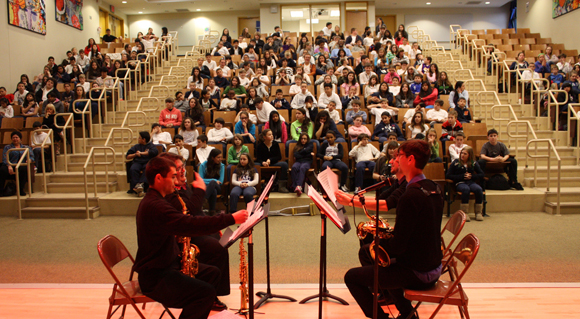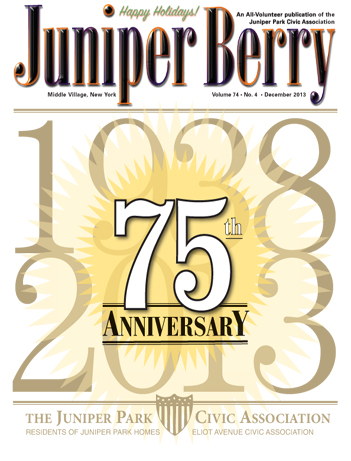I am sitting in my infant high chair in the small kitchen of our apartment, the four rooms above Fisher’s Men’s Shop on Grand Avenue in Maspeth. My parents and grandparents spend most of their waking hours working in their family clothing business below. But at this moment I am listening to a 78 rpm record that my mother, Shirley Fisher, has just put on. I can’t understand the words I am hearing sung because they are in Italian. It is an aria from Puccini’s opera, Madama Butterfly.
What I do understand is that this music is giving my mother a great deal of pleasure and so I listen to it attentively. It is sad and beautiful and we will listen to this recording many more times together until the words sound as natural as the ones I am learning in my own language.
Seven years later on a sweltering summer evening, my mother and I are setting off from Maspeth for a destination unknown to me. This feels like a great adventure because my parents take very seriously Dr. Spock’s advice to put children to bed as early as the chickens. We board the 67 bus, wend our way to Long Island City and descend to an underground darkness punctuated only by naked overhead light bulbs placed twenty feet apart. The subway ride turns out to be long, the straw seats are blazing hot and when we alight and are again above ground, it is another long bus ride that awaits us. Two hours after our departure from Maspeth, we have arrived at Lewisohn Stadium, City College, in northern Manhattan. We sit on the cement bleachers under a darkening sky. And then the concert begins. I no longer recall the pianist who performed that night, but I do know it was Tchaikovsky’s Piano Concert #1 that we heard. As I listen, it takes me only moments to understand why my mother has organized this pilgrimage. The music is achingly beautiful, powerful and tender by turn. When we leave to make the return trip home several hours later, I know that I will never forget this experience.
More years pass. It is now 1966 and my mother and I are about to enter the old Metropolitan Opera House located on Broadway at West 39th Street in Manhattan. Upon our entrance into the hall, we are struck by the fact that the shades on the wall lamp fixtures are all missing. Patrons, it turns out, have removed every last one of them as mementoes of the place. Unbelievably, the Old Met, itself a fixture in the New York arts scene and a mecca for classical music lovers from New York and around the world since 1883, is about to be demolished despite a campaign to obtain landmark status for it. It is again Tchaikovsky who has brought us to Manhattan. Though we are still in the midst of the Cold War, somehow the Bolshoi Ballet has been granted permission to leave Moscow and come here. My mother has not wanted us to miss this rare opportunity to see the renowned company perform Swann Lake. Coincidentally we are about to witness one of the very last public performances to be given in this historic hall before it disappears for all time.
Fast-forward half a century. I am at a weekend classical music concert at Lincoln Center with a long-time friend. Before the concert begins, I look around at the audience and am struck by the fact that there are no children here. Where are the 21st century versions of my mother and my childhood self? It dawns on me that this has been true of the audiences for a very long time. Perhaps the price of tickets makes it difficult for parents to take their children to such events. Thinking about this sad fact makes me want to change things, if only in a small way, and I begin to wonder if it isn’t possible to bring some of the music I have grown to love to children directly. Perhaps musicians could be brought into the elementary schools to give concerts during the school day. Tailor them for the enjoyment of today’s kids. Make them interactive and fun, while teaching a bit about the composers and the instruments as well. And make these mini-concerts free to the schools that host them. Take Bach to school!
This last phrase stuck in my mind whenever I spoke about my idea and eventually it is what I called it. Not everyone was encouraging. More than once I was asked: “How will you get kids to listen to classical music when even adults find it boring?” But Professor Edward Smaldone, head of the Copland School of Music at Queens College, was enthusiastic and it was he who made my plan come to life. “If you can coordinate these events with the schools, we can provide the musicians!” he assured me.
Sister Rose Torma, principal of St. Stan’s in Maspeth, was equally enthusiastic about hosting the inaugural “Bach to School” concert. It took place on December 9, 2011 and featured Jessica Tortorice on violin and her accompanist, Peter Ludlow, on piano. Many of the children in that audience had never before listened to the music of Bach or Beethoven, but they loved what they heard. Afterwards, seventh-grader Alexandra Sokolowki wrote in a letter to us: “Listening to the performers made me feel as if I was alone, just me listening to them. It made me think that maybe I like classical music.” It was a sentiment that we would hear expressed many more times.
Thanks to a grant from the Queens College Foundation, we were able to hold more concerts in other schools throughout the borough of Queens. We have played at P.S./I.S. 128 and P.S. /I.S. 49 in Middle Village, P.S. 58 in Maspeth and schools in East Elmhurst, Richmond Hill and Flushing. The “Bach to School” Program is about to begin its fifth year and already we have introduced hundreds of children to a kind of music which often they have never heard before. When I arty to sum up what we have accomplished, I am reminded of a comment made in a letter written by a young audience member who had heard our Baroque Trio play in his school. He wrote: “I used to think that the violin was only good for hurting a person’s ears with its loud, screeching sound. But I really enjoyed your playing.” It’s a comment that I think would probably have made my mother cheer.
Maxine Fisher teaches writing at Queens College.



